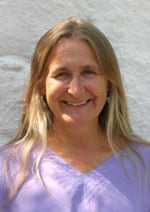 Hello! My name is Penny O’Connor
Hello! My name is Penny O’Connor
I am a member of the Society of Teachers of the Alexander Technique.
Before training as an Alexander teacher, I worked for ten years as a performer/writer/director and taught drama and special needs in secondary schools. After my training I assisted the training of other teachers at the Centre for Training in North London and set up a consultancy Awareness and Development to take the Technique into the workplace, organizing workshops and conferences, focusing on practical research on RSI. I still work in corporations to assist in postural alignment at the workplace.
I then returned to my first love of theatre, working with BA and MA acting and musical theatre students, and pupils from the 6th form at the Arts Educational School London in Chiswick. I now work with opera students at Associated Studios, running a mentoring scheme for newly qualified Alexander teachers as they assist me in the classes. I have also worked for Graeae Theatre Company, teaching courses in voice and Alexander for disabled students; Mind The Gap; The Actors Centre; Theatre Royal Northampton, the London Musical Theatre School, and guest tutor at the Central School Of Speech and Drama film faculty..
I have taught and lectured internationally – Istanbul, New York, Haifa, Athens, Corfu, Thessaloniki and Paris. I have facilitated and organized drama conferences for STAT , given workshops for STAT, the Students Network, and at the International Congress of Alexander Technique in Oxford, Lugano and Limerick . I am the Assistant at the Queens Park Alexander Training School specialising in voice and am part of the faculty for The Performing Self, developing teacher skills working with performers. I run workshops for all levels on the Greek Island of Alonnisos during the summer. I teach privately in the City of London, Chiswick, Sevenoaks and in Alonnisos. Other interests include singing overtones, NLP, Reiki, Chi Kung, gardening, running and learning folk fiddle.
Me and the Technique
What do I want my students to learn through Alexander Technique?
I want them to experience a unified field of attention: a conscious awareness and flexibility, that empowers them to choose for themselves what they want to do and how to do it; to open themselves to learning; to be in relationship with the world about them, living in the present, here and now. And when that happens, life becomes effortless, magical, and easy. We enjoy the journey. And in finding this state, postural problems, vocal difficulties, pain, discomfort, tension, stress, all diminish and/or disappear.
And I can’t think of a better way than Alexander Technique for that.
Here’s a poem that I like, that is very Alexandrian:
Ithaca
When you set out on your way to Ithaca
Pray that your journey be a long one
Full of adventure, full of knowledge.
The Laistrigons and the Cyclops,
The angry Poseidon, do not fear
Such things you will not meet.
But if your thought is noble
You will be moved in spirit and body.
The Laistrigons and the Cyclops
The fierce Poseidon you will not encounter
Unless you carry them within you
And your soul puts them in front of you.
Pray that your journey be a long one.
Many the summer mornings to be
That with great joy and happiness
You’ll enter harbours unvisited.
You should stop at the Phoenician trade stations
And buy all the fine goods,
Silk and coral, amber and ebony.
Buy sensuous perfumes too, of all sorts,
As many as you can of the sensuous perfumes.
You should also pay a visit to the Egyptian towns
To learn and learn again from the learned ones.
Always keep Ithaca in your heart.
That is your final destination.
But don’t rush the journey in the least.
It’s better to make it last for years
And when you finally come to the island to rest, an ancient one,
Do not expect Ithaca to give you any riches.
Ithaca gave you a beautiful journey.
Without her you wouldn’t have set out.
She has nothing more to give you.
Poor though you have found Ithaca
She will not let you down.
With all the wisdom and experience
You must have realized the symbolism of all the Ithacas.
By Kostas Kavafis
Trans. Pakis Athanassiou